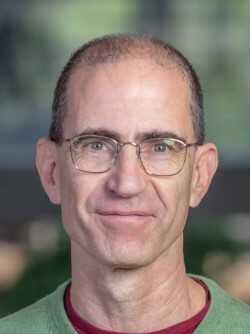Advanced medicine? Leading high-tech industry? Safe infrastructure? Defense systems against missiles? Secure water supply? Protection of the environment? Strong economy? Groundbreaking agriculture (pun not meant)? World-class literature and cinema? Nobel prizes? Israel’s technological, economic, social, cultural and military powers depend on the independence, innovation, and creativity of its research universities and academia at large and the education they provide to their graduates.
Read more stories:
How is it then that in parallel to its attempt to weaken the judicial system, Israel’s ruling coalition targets the academia, attempting to weaken it and limit its independence? One of the first steps taken by Education Minister Yoav Kish when he took office, was to seize control of Israel’s national library, an independent academic institution.
Having failed due to strong resistance, Mr. Kish continues with his attempt to take control of an even more important target – the Council for Higher Education, which governs all academic institutes, by nominating members based on political loyalty rather than academic stature.
In addition, there is new legislation that aims to interfere with students’ freedom of speech on campuses, and funds already promised, are being withheld for programs to promote Palestinian students’ academic participation. The picture is clear. Judging from what happened in countries like Hungary and Poland, the next stages will likely be the government deciding appointments and promotions, discrimination in admission, and oversight of the curricula. The unavoidable result will be a rapid decline of Israeli academia as has happened elsewhere. Yet, if one considers that the government’s main goal is to secure its unrestrained control, with no checks and balances, and with no way to remove it from power, the logic behind the government's actions is clear.
Acting rationally for the public’s greater good requires careful consideration of expert opinions, which are based on data, and relevant experience and education, all present in academia or derived from it. The reverse mode of action, which can be observed in Israel lately, is making arbitrary and tyrannical decisions, based at best, on a combination of gut feelings and unfounded beliefs, and at worst, on sectorial interests, corruption and a hunger for power.
Examples are abundant. The government canceled the taxation on sweetened beverages against the good advice of all experts in public health (Israel has the highest incidence of limb amputation due to diabetes), as well as taxation on electronic cigarettes and on environmentally unfriendly disposable dishes that are excessively used.
The government is also dismantling the National Council for Nutritional Security, an autonomous body of experts in nutrition and poverty that battled child malnutrition and has put on hold a highly needed public transportation project in metropolitan Tel Aviv in favor of a plan to connect the northernmost and southernmost corners of Israel by train – despite that project being rejected repeatedly over the years by transportation experts and economists as a futile idea. It is also considering removing the academic education requirement of paramedical professionals such as speech therapists and to cut practicle training from 3 years to 6 months.
In Israel like anywhere in the world, advanced education (and the ensuing improvement of socio-economic status) goes hand in hand with more liberal, democratic values. This should not come as a surprise – as a rule (despite occasional exceptions), a wider knowledge base and critical thinking, which are what universities strive to bestow on their graduates, expose students to complexities, historical precedence, and a variety of ideologies, including liberal ones. The threat to the values promoted by the current government is obvious.
More generally, the academic approach includes critical thinking and the freedom to challenge dogmas. Successful academics are busy finding holes and mistakes in current theories. The greatest achievements of science are those that went against accepted views (think Copernicus and Galileo). Not that academia is quick to adopt these new ideas. On the contrary, they will be carefully tested with the same critical approach. And yet, by its openness to refutes and its embracing of rational and critical thinking, academia threatens authoritarian regimes that view these ways of thinking as a danger.
 Professor Leon Y. Deouell
Professor Leon Y. DeouellRational thinking, scientific knowledge and expertise are at the foundation of the prosperity of liberal democracies, none of which is ideal. All harbor cases of injustice, inequality and discrimination, yet all are better for their citizens and are more moral, than autocratic or theocratic countries. Education is still the key to enlightenment, knowledge and values that allow humanity to deal with the really big problems – disease, hunger, famine and natural disasters, as well as wars and oppression. Without academia, we will drift to a world of sickness, poverty, oppression and ignorance.
Professor Leon Y. Deouell MD, PhD is a member of the Department of Psychology at the Edmond and Lily Safra Center for Brain Sciences (ELSC), The Hebrew University of Jerusalem
First published: 20:33, 08.31.23




